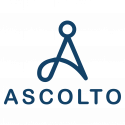Organisational Change and Transformation
W Edwards Deming said that “Survival is optional. No one has to change.” Today uncertainty is the norm, and organisations need to adapt to survive.
Survival is optional. No one has to change.
W. Edwards Deming
About Organisational Change and Transformation
Organisations are in the business of change. In a dynamic and fast changing world where uncertainty is the norm – organisations need to adapt to survive. Successful organisational change and transformation projects start with a clear understanding of the customer and the environment surrounding the business; then the development of a clear purpose vision and narrative of what the future looks like [1], and so how the organisation creates and delivers value. From there a strategy of how to get to that future can be developed – through changes in processes, technology and people [2].
Organisational development examines why work is dome and how work is done. It is concerned with who carries out work, in what ways, and what the people who carry out the work believe and feel about their efficiency and their effectiveness – these are the catalysts for improvement [3].
What we do
We work with clients to support their organisational development or change programme. We bring an independent, external, critical friend to support successful and sustainable change. Our starting point is first to understand the organisation, its aspirations, its purpose and vision, and its resources – particularly its people. We are not afraid to ask challenging questions, and dig deep as the external perspective often allows us to bring a holistic view to senior leaders.
Alongside this strategic sense making we apply a practical ‘what works’ approach, always starting with the evidence, testing our assumptions and apply a common sense test – both to our input, and to plans and concepts developed in organisations themselves.
Skilled in value thinking, creative problem solving, and psychological insight to people and relationships – we are comfortable in bringing alternative view points that may shift thinking and open new perspectives on issues.
What our clients say
I originally worked alongside Kris within the National College of Police Leadership, where I witnessed first-hand her skills in coaching and developing senior leaders. I was deeply impressed by her approach and it was clear from direct feedback and observable changes in behaviour, that those she worked with greatly appreciated her support. Sometime later, I was engaged in a significant specialist operational collaboration between forces and sought Kris’s advice on how best to manage the cultural change aspects of merging 3 separate specialisms and teams into a single entity. Kris willingly responded to the challenge and within a week she had met in person with all the strategic stakeholders and held team meetings with practitioners in each of the forces involved. Through this she was able to develop a comprehensive change readiness assessment, which formed the basis of our cultural change strategy. I cannot commend Kris’s work highly enough as she so practically demonstrated the impact of professional engagement with operational staff to develop a jointly-owned approach that has resulted in the creation of an efficient and effective team delivering specialist services for the benefit of the communities served.
Bibliography
| [1] | C. van den Hemel, M. F. Rademakers “Building Customer-centric Organizations: Shaping Factors and Barriers“, Journal of Creating Value, 2(2), 2016. |
| [2] | J.P. Kotter, “Leading change”. Boston: Harvard Business Press, 1996. |
| [3] | W. W. Burke, “Organisational development: A process of learning and changing”, New York: Addison-Wesley, 1992. |
